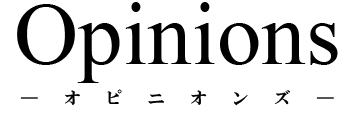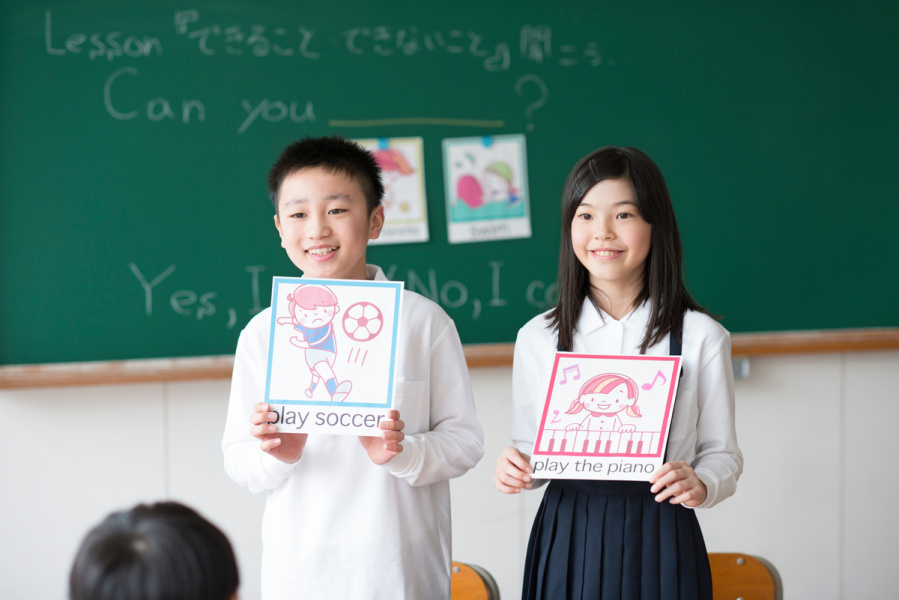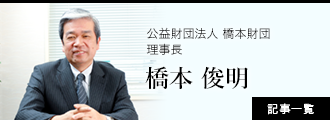
- 記事一覧
- ゲストライター記事一覧
- Teaching English in Japan from the perspective of an immigrant 移民から見た日本における英語教育
Teaching English in Japan from the perspective of an immigrant 移民から見た日本における英語教育

My name is Emre Ekici, and I am a trained sound engineer and music professional. My primary job involves technology, so English has surrounded me for more than twenty years, which has helped me develop my language abilities in international settings and with native speakers.
I am passionate about learning, teaching, and English. I came to Japan in April 2022, and after a month, I started teaching English online to various schools all around Japan. In this brief essay, I aim to explain my experiences as an online English teacher in Japan. I had the opportunity to teach many children from different prefectures and schools, including schools for children with special needs. I have realized that there are some significant issues in teaching English. I would like to write an essay to draw attention to Japanese students' and immigrant teachers' challenges during English classes. I will first explain a fundamental issue in each paragraph and further describe the practical issues that emerged from each fundamental issue, eventually with a solution to these issues that emerge to a general theme.
Theme 1: ALTs, their competency and dispatch companies
I would like to start with the competency of ALTs (Assistant Language Teacher: a native or non-native proficient speaker of the foreign language who helps the JTE -Japanese Teachers of English- in classrooms. My impression of ALTs is that many see Japan as an exit from their home country. Japan is not their first choice most of the time, or they have dreamt of living in Japan because of "anime shows." These bachelor graduates might have studied any field, and their licensure is irrelevant as long as they sign a contract with one of the ALT dispatch companies. These dispatch companies are known for their low employee retention ratio due to inconsiderate working conditions and managers. Consequently, a slightly unthoughtful situation arrives in the classrooms of Japan: university graduates of any department who are unsure about what to do in their lives sign a contract with a dispatch company and try to educate Japanese children. Being unhappy in their home country and new country due to working conditions, meanwhile trying to create a positive impact on children from a different culture, I am afraid, is nothing more than overly optimistic. The Japanese schools should have competent English assistant teachers in the classroom, and this situation can only be satisfied when ALT dispatch companies go over a revision of their working conditions by negotiating with the schools under realistic expectations.
Theme 2: Curriculum that ignores cultural differences
Another issue that I encountered is the curriculum that is provided to ALTs. In general, ALTs are not supposed to create a new curriculum teaching; they are supposed to teach what JTE provides to them. Since native Japanese speakers create these curricula, ALTs are discouraged from creating something new. This aspect of limited work tries to somehow cover over the cultural differences between English-speaking countries and Japan. This scenario is puzzling: there is no such thing as "Japanese-style" English teaching. If English is aimed to be taught to children, of course, it should be done by considering the cultural differences but not by having a tunnel vision of the host culture. In other words, the dominant culture's values or mindsets should not override the content of a foreign language. However, the dominant culture's values also should not be ignored in this process of teaching a foreign language. English is a language spoken globally by different nationalities, and non-native speakers of the language can have a gateway to the world with the help of the language. In most English classrooms, students are not encouraged to speak about anything other than casual conversations, which leads to vague statements about what color or animal they like at any grade.
English should be promoted as an opportunity to talk about themselves or learn about other people's genuine interests in a friendly manner rather than having strictly regulated conversations. Curricula are strictly structured without leaving room for flexibility and the free flow of thoughts. I observe that teachers think out-of-book-based speech means being out of control. There is no "one way" to introduce yourself in English: people have diverse interests and opinions, everyone is unique, and people can live along with differences, even if they are too different. Inclusion should not impose sameness on students. Students should not be controlled but be guided to acquire autonomy.
Theme 3: JTEs’ attitudes and nature of foreign languages
A similar issue comes to some JTEs who intervene with students constantly when students try to speak up. I am not sure if this is limited to English classes. However, I observed that JTEs might act similarly to overly indulgent parents to their students. For instance, sometimes, students try to engage with an ALT. However, when they pause for a second, the teacher immediately comes up with suggestions. As if coming up with a suggestion was not enough, the JTE repeats the same suggestion many times to ensure that the student will repeat what they are saying. In my view, it hurts students' autonomy and self-decision-making skills. These interventions kill the nature of speaking a foreign language. There will not be anyone constantly making you suggestions in a regular conversation with an English speaker. Furthermore, even native speakers will make mistakes. English does not have to be perfect or fun! We do not have to speak with a perfect accent, grammar, or cohesion. We are not perfect, and we do not have to be perfect. But we can enjoy it and have fun without being perfect. English should be an opportunity to understand that the world beyond us.
Theme 4: Stress due to social pressure
English classrooms should not be a place that causes stress. It should be an inclusive environment for all walks of life. Children should be allowed to make mistakes, and it should be normalized to make mistakes. Classrooms are the ideal medium to make mistakes and learn from them. Making mistakes in a foreign language should not be a reason for embarrassment. This attitude towards foreign languages in the Japanese education system also raises JTEs. They force themselves not to make mistakes and usually speak basic English. This situation leads to teachers who are afraid to make mistakes raising children who are even scared to try. I see a vicious cycle here with a problematic feedback loop.
Conclusion
To summarize, I have mentioned four general themes about English teaching in Japan. The first one was the competency of ALTs in the English classroom and ALT dispatch companies' role in this regard. The second one was the lack of creativity and openness in the curriculum, which eliminates the fact that learning a foreign language also means learning a foreign culture. Thirdly, JTEs' overly protective and intervening attitude in the English classroom creates strict regulation over learning a language that is mainly achieved through acquisition rather than memorization. Lastly, making mistakes is entirely normal when speaking a foreign language with a different alphabet, and making mistakes in such a challenging situation should be normalized.
In conclusion, when we acquire a new language, we also learn a new culture. JTEs should be able to adopt a mindset that internalizes (a) English classes are international environments, (b) children should be themselves during these classes, and (c) these classes should be an opportunity to explore themselves in a new cultural context. ALTs' duties should not be limited to teaching English, but also, they should be able to introduce new cultures, perspectives, and lifestyles.
私はEmre Ekiciです。サウンドエンジニアであり、プロの音楽家でもあります。私の仕事は主に技術に関わることで、20年以上にわたって英語に囲まれていたこともあり、国際的な環境やネイティブスピーカーとの関わりの中で、自身の語学力を伸ばすことが出来ました。
私は、英語や、学ぶ事、教える事に情熱を持っています。私は2022年4月に来日し、その1ヶ月後には日本中の様々な学校でオンラインで英語を教え始めました。このエッセイでは、日本でのオンライン英語教師としての私の経験について説明したいと思います。私は、あちこちの県の学校や特別支援学校の子供達を教えました。その中で日本の英語教育には大きな問題があることに気が付きました。そのようなこともあり、日本人の学生だけではなく、自身が移民でもある英語教師が、英語の授業で直面するチャレンジに注目してもらう為にも、この文章を書くことにしました。まずは根本的な問題を説明し、次にそれぞれの根本的な問題から浮かび上がってきた現場での問題を説明し、最後に、これらの問題の解決策を述べたいと思います。
テーマ1:ALT。彼らのスキルや適性とALTの派遣会社について
まず始めに、ALT(Assistant Language Teacher:外国語のネイティブスピーカー、あるいはノンネイティブスピーカーで、JTE(Japanese Teachers of English)が行う授業の補助を行う今教師)のスキルや適性について述べたいと思います。
私のALTの人々の印象は、日本を母国から脱出するための手段として捉えている方が多いというものです。大体において日本に住むことが第一志望というわけではなく、"アニメ "を見て日本に住むことを夢見た方もいるでしょう。ALTの派遣会社と契約さえ交わしてしまえば、ALTの方々はどのような分野の学士号を取得していたとしても、彼らが教員としての免許を持っているか否かも関係ないのです。
このようなALTの派遣会社は、労働条件等においても配慮に欠ける為、社員の定着率が低いことでも知られています。その結果日本の教室には、学部を問わず、進路に迷ったどこかの大学の卒業生が派遣会社と契約し、日本の子供たちを教育しようとしているという、ちょっと考えられない事態が起こっているのです。母国での生活にも満足しておらず、他の国においても労働条件等によって満足のいく生活ではないという一方で、異文化の子供達に良い影響を与えて欲しいというのは、私は過剰な期待以外の何ものでもないと思います。日本の学校には優秀な英語のアシスタント教師が必要なのですが、この状況はALTの派遣会社が現実的な期待値の元に学校側と交渉し、労働条件の改定に踏み切らない限り、変えることは出来ません。
テーマ2:文化の違いを無視したカリキュラム
もう一つの問題は、ALTに提供されるカリキュラムです。一般的に、ALTは新しいカリキュラムを作ることを奨励されず、JTEから提供されたもののみを教えることになっています。日本語のネイティブスピーカーがカリキュラムを作成し、ALTは新しいカリキュラムを作成させてもらえないのです。このような制限のある中で、彼らALTは英語圏と日本との文化の違いを何とかカバーしようとしているのです。
この状況はとても複雑です。「日本式」の英語教育というものは存在しません。子供達に英語を教えるのであれば、もちろん文化の違いを考慮した上で行うことが必要ですが、ホストとなる文化のトンネルビジョン(自分の考え方とは異なる他の可能性を考慮しようとしない姿勢)があってはいけないのです。つまり、支配的な位置にある文化の価値観や考え方が、そこで教えられる外国語の内容よりも優先されることがあってはいけないのです。しかし、この外国語を教える過程では、ホストとなる文化の価値観もまた無視することは出来ないのです。英語は国を超えて様々な国籍の人に使用されている言葉であり、英語を母国語としない人々も、英語の助けを借りて世界への扉を開くことが出来るのです。多くの英語教室では、生徒がカジュアルな会話以外を話すことが奨励されていないため、どの学年になっても、好きな色は何色ですか、好きな動物は何ですか、というような漠然とした表現しか学ぶ事が出来ないのです。
英語は、厳しく制限された中で会話をするのではなく、自分のことを話したり、他の人の事を知る機会として、親しみを持って進められるべきなのです。ところがカリキュラムが厳密に構成されている為、そこに柔軟性を持ったり、自由な発想で行う余地がないのです。教科書にのっていないことを話し始めると、話す内容が決まった形式のものではなくなる為、コントロールが出来なくなってしまうと考える教師もいるようです。英語での自己紹介の方法に、唯一の方法というものはありません。人は様々な興味や意見を持ち、誰もがそれぞれユニークな存在であり、たとえその違いが大きすぎたとしても、その違いと共に生きていくことが出来るのです。インクルージョンというのは、生徒に同質性を押し付けるものではないのです。生徒をコントロールするのではなく、自律性を身につけられるように導いていくことが大切なのです。
テーマ3:JTEの態度と、外国語であるという性質
同様の問題は、JTEの側にもあります。生徒が発言しようとすると、常に介入してくるJTEもいます。これは英語の授業に限ったことなのかどうかはわかりませんが、私は、JTEが生徒に対して、まるで過度に甘やかす親と同じような態度を取っているのではないかと思うことがあります。時々、生徒がALTとコミュニケーションを取ろうとすることがあります。しかし、生徒がちょっとでも会話に詰まると、教師がすぐに助言をしてきます。さらに、助言するだけでは飽き足らず、同じ助言を何度も繰り返し、生徒が自分の言っていることを繰り返すように仕向けてしまうのです。私は、そのような行為は生徒の自律性と自己決定力を傷つけてしまうと思います。このような介入は、外国語を話すということの本質を殺してしまいます。英語を話す人との会話の中で、あなたにその都度助言してくる人はいないでしょう。ネイティブスピーカーであっても間違えることはあります。英語は完璧である必要も、楽しくなければいけないということもありません。私たちは、完璧なアクセント、文法、まとまりで話す必要もないのです。私たちは完璧ではありませんし、完璧である必要もありません。しかし、完璧でなくとも楽しむことは出来ます。英語を学ぶことは、世界は無限であるということを理解するきっかけになるはずです。
テーマ4:社会的プレッシャーにより生じるストレス
英語のクラスは、ストレスを与える場所であってはいけません。あらゆる人が参加できるインクルーシブな環境でなくてはなりません。子供達は間違えることを許され、間違えることが当たり前でなくてはいけないのです。教室というのは、間違えて、そこから学ぶための理想的な媒体です。外国語を間違えることが恥ずかしいことであってはなりません。日本の教育システムにおいて、このような外国語に対する考え方を持つことは、JTEを育てる事にも繋がるのです。間違えることが当たり前ではないという状況下では、JTEは間違えないようにと自分を追いこんでしまう為、基本的な英語の言い回ししか教えることが出来なくなってしまいます。その結果、間違えることを恐れる教師が、挑戦することさえ恐れてしまう子供を育ててしまうという悪循環が生まれているのです。
まとめ
これまで私は日本の英語教育について4つのテーマについて述べてきました。まず1つ目は、英語の授業におけるALTのスキルや適性とALT派遣会社の役割。2つ目は、カリキュラムに独創性と寛容さが欠けており、外国語を学ぶことは外国の文化を学ぶことでもあるという事実が排除されてしまっているということ。3つ目に、英語の授業におけるJTEの過度に介入する態度が、主に暗記ではなく習得によって達成される言語学習に対し制限を設けてしまっているということ。最後に、アルファベットの異なる外国語を話すときに間違えることは当たり前のことであり、そのような困難な状況の中で間違えることは普通のことだと考えられなくてはいけないということです。
新しい言語を習得するという事は、同時に新しい文化を学ぶ事でもあります。それにあたって、JTEは、次のような考え方を内在化させることが必要になるでしょう。
(a) 英語のクラスというのは、国際的で、多様性のある環境であると理解すること (b) 子供達が、授業中自分らしくいられること、そして (c) 英語の授業は新しい文化の中で自分を探求する機会であること。ALTの役割は英語を教えることに留まらず、新しい文化や考え方、ライフスタイルを紹介することが出来る存在であるべきなのです。
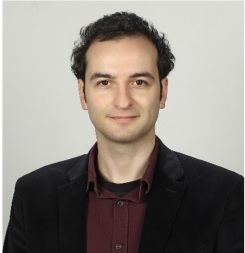
Recently Popular最近よく読まれている記事
-

食べていても痩せる 高齢者終末期のカヘキシア(悪液質)
食べていても痩せる。活発に運動を続けている人なら不思議に思わないが、介護度の高い高齢者にそのようなことが果たして起こるのだろうか。起こるのであれば、それはカヘキシアという病態であれば説明できる。 カヘキシア(悪液質)カヘキシアとは、食欲不振・体重減少・全身衰弱・倦怠感などを呈し、生命予後やQOL(qualit… -

終末期の自然な経過を見極めるとは
長期に渡り胃ろうからの栄養を続けていると、注入した物が食道へ逆流したり、唾液や痰の貯留が増えたりして、吸引を繰り返すことになるが、結局のところ、頻回の吸引も間に合わず、心肺停止状態で発見されることが多い。これでは看取りとは言えない。ここに至るまでの言葉を語れない人の苦しみ。このような事態を避ける智慧… -

自閉症スペクトラムと呼ばれているような障害は、実は障害ではない。生物としての人類のバリエーション(変異)の一つである。
自閉症スペクトラムと呼ばれているような障害は、実は障害ではない。生物としての人類のバリエーション(変異)の一つである。本来は人類の、生息環境に対する適応の一つのあり方だというのが、ニューロダイバーシテイ(脳多様性)という考え方に他ならない(詳しくは正高信男著『ニューロダイバーシテイと発達障害』(北大… -

社会保障分野での普遍主義と選別主義について
介護保険や医療保険では、貧富にかかわらず保険によって9割が給付(自己負担は1割)あるいは、7割が給付(自己負担は3割)される。この様な社会保障の方式は、「普遍主義」といわれている。「普遍主義」は、義務教育や、最近では高等学校の授業料にも適応されている(この場合も裕福な人も貧しい人も同様に無償である)。反… -

医療崩壊
ある日の外来。朝の9時から診察室に座りっぱなしでそろそろ3時間が経過。既に再診患だけではなく、その日の新患も回ってきます。で、そうした中に問題のおじさんがいました。「今、○○クリニックで薬をもらっていまして・・・」「30日分貰っているのですが、お腹が痛くなったので、診てもらいに来ました」「○○先生の紹介… -

綺麗好きにもほどがある。小児白血病の原因の99%は過剰に清潔な環境にある。
私の友人に初孫ができました。女の子でとても可愛く、友人の小さな目に入れても痛くないくらいの溺愛ぶりです。いつもビデオを見せられます。1歳になったところですが、歩くよりもハイハイの方が得意なのか、家の中を這い回っています。何にでも興味があるらしく、ハイハイの途中に有るものは手に取って、次には必ず口に持…
Writer ライター
-
 介護福祉士渡口 将生
介護福祉士渡口 将生渡口 将生の記事を見る
-
 相談支援専門員・福祉ネイリストゆき
相談支援専門員・福祉ネイリストゆきゆきの記事を見る
-
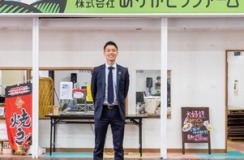 株式会社ありがとうファーム取締役副社長馬場 拓郎
株式会社ありがとうファーム取締役副社長馬場 拓郎馬場 拓郎の記事を見る
-
 ジャーナリスト ペンネームジョワキン
ジャーナリスト ペンネームジョワキンジョワキンの記事を見る
-
 ソシエタス総合研究所 研究員Waode Hanifah Istiqomah(ワオデ ハニファー イスティコマー)
ソシエタス総合研究所 研究員Waode Hanifah Istiqomah(ワオデ ハニファー イスティコマー)Waode Hanifah Istiqomah(ワオデ ハニファー イスティコマー)の記事を見る
-
 機械設計士芦田 航大
機械設計士芦田 航大芦田 航大の記事を見る
-
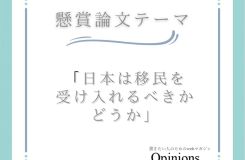 元芝園団地自治会岡﨑 広樹
元芝園団地自治会岡﨑 広樹岡﨑 広樹の記事を見る
-
 岡山外語学院留学生カーン エムディ マムン
岡山外語学院留学生カーン エムディ マムンカーン エムディ マムンの記事を見る
-
 行政書士板垣 岳人
行政書士板垣 岳人板垣 岳人の記事を見る
-
 Crimson Education教育コンサルタント蘇 暁辰(Xiaochen Su)
Crimson Education教育コンサルタント蘇 暁辰(Xiaochen Su)蘇 暁辰(Xiaochen Su)の記事を見る
-
 神戸大学准教授斉藤 善久
神戸大学准教授斉藤 善久斉藤 善久の記事を見る
-
 ドイツ在住阿部プッシェル 薫
ドイツ在住阿部プッシェル 薫阿部プッシェル 薫の記事を見る
-
 ライター/編集者黒部 麻子
ライター/編集者黒部 麻子黒部 麻子の記事を見る
-
 翻訳家田尻 潤子
翻訳家田尻 潤子田尻 潤子の記事を見る
-
 アブダビ環境庁長官 Environment Agency – Abu Dhabi (ead.gov.ae)シャイカ・サレム・アル・ダヘリ
アブダビ環境庁長官 Environment Agency – Abu Dhabi (ead.gov.ae)シャイカ・サレム・アル・ダヘリシャイカ・サレム・アル・ダヘリの記事を見る
-
 元整形外科医/農園主散木洞人
元整形外科医/農園主散木洞人散木洞人の記事を見る
-
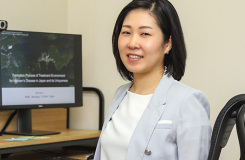 豊橋技術科学大学パク ミンジョン
豊橋技術科学大学パク ミンジョンパク ミンジョンの記事を見る
-
 生理革命委員会澤田まりあ、山形萌花、山領珊南
生理革命委員会澤田まりあ、山形萌花、山領珊南澤田まりあ、山形萌花、山領珊南の記事を見る
-
 SOMPOケア株式会社藤田 定司
SOMPOケア株式会社藤田 定司藤田 定司の記事を見る
-
 おかやま山陽高等学校橘 里香サニヤ
おかやま山陽高等学校橘 里香サニヤ橘 里香サニヤの記事を見る
-
 ソシエタス総合研究所 研究員坂入 悦子
ソシエタス総合研究所 研究員坂入 悦子坂入 悦子の記事を見る
-
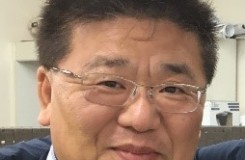 Hiro山下行政書士国際法務事務所 代表山下裕司
Hiro山下行政書士国際法務事務所 代表山下裕司山下裕司の記事を見る
-
 ソシエタス総合研究所 研究員Niklas Holzapfel ホルツ アッペル ニクラス
ソシエタス総合研究所 研究員Niklas Holzapfel ホルツ アッペル ニクラスNiklas Holzapfel ホルツ アッペル ニクラスの記事を見る
-
 サウンドエンジニアEmre・Ekici エムレ・エキジ
サウンドエンジニアEmre・Ekici エムレ・エキジEmre・Ekici エムレ・エキジの記事を見る
-
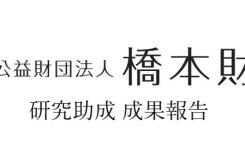 NPO法人岡山県国際団体協議会
NPO法人岡山県国際団体協議会岡山県国際団体協議会の記事を見る
-
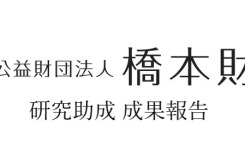 岡山大学 学術研究院 社会文化科学学域 教授東條 光彦
岡山大学 学術研究院 社会文化科学学域 教授東條 光彦東條 光彦の記事を見る
-
 福岡大学 名誉教授田村 和夫
福岡大学 名誉教授田村 和夫田村 和夫の記事を見る
-
 ソシエタス総合研究所 研究員相川 真穂
ソシエタス総合研究所 研究員相川 真穂相川 真穂の記事を見る
-
 一般社団法人京都総合科学研究所 アドバイザー松村 道郎
一般社団法人京都総合科学研究所 アドバイザー松村 道郎松村 道郎の記事を見る
-
 ワラム株式会社 代表取締役加藤 侑子
ワラム株式会社 代表取締役加藤 侑子加藤 侑子の記事を見る
-
 岡山市立操南中学校 教諭/NPO法人国際協力研究所・岡山(ICOI) 副代表理事竹島 潤
岡山市立操南中学校 教諭/NPO法人国際協力研究所・岡山(ICOI) 副代表理事竹島 潤竹島 潤の記事を見る
-
 新西横浜街の予防医療ケア研究室 保健師・看護師・元先端バイオ創薬ベンチャー取締役五十嵐 直敬
新西横浜街の予防医療ケア研究室 保健師・看護師・元先端バイオ創薬ベンチャー取締役五十嵐 直敬五十嵐 直敬の記事を見る
-
 共著橋本俊明・秋吉湖音
共著橋本俊明・秋吉湖音橋本俊明・秋吉湖音の記事を見る
-
 ライター菊池 洋勝
ライター菊池 洋勝菊池 洋勝の記事を見る
-
 大東文化大学国際関係学部・特任教授 高崎経済大学経済学部・非常勤講師 国際ビジネス・コンサルタント、博士(経済学)江崎 康弘
大東文化大学国際関係学部・特任教授 高崎経済大学経済学部・非常勤講師 国際ビジネス・コンサルタント、博士(経済学)江崎 康弘江崎 康弘の記事を見る
-
 ソシエタス総合研究所 研究員秋吉 湖音
ソシエタス総合研究所 研究員秋吉 湖音秋吉 湖音の記事を見る
-
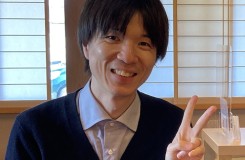 SOMPOホールディングス株式会社 課長代理足立 伸也
SOMPOホールディングス株式会社 課長代理足立 伸也足立 伸也の記事を見る
-
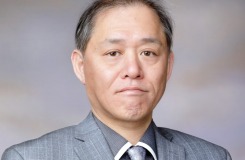 富士通株式会社 第三ファイナンス事業本部 シニアマネージャー安留 義孝
富士通株式会社 第三ファイナンス事業本部 シニアマネージャー安留 義孝安留 義孝の記事を見る
-
 EDAS(イーダス)理事長田村 拓
EDAS(イーダス)理事長田村 拓田村 拓の記事を見る
-
 監督・プロデューサー湯浅 典子
監督・プロデューサー湯浅 典子湯浅 典子の記事を見る
-
 日本経済大学 准教授山下 誠矢
日本経済大学 准教授山下 誠矢山下 誠矢の記事を見る
-
 人と医療の研究室 代表池尻 達紀
人と医療の研究室 代表池尻 達紀池尻 達紀の記事を見る
-
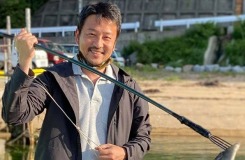 一般社団法人飛島学園 代表理事堂野 博之
一般社団法人飛島学園 代表理事堂野 博之堂野 博之の記事を見る
-
 ニッセイ基礎研究所 生活研究部 主任研究員、ヘルスケアリサーチセンター・ジェロントロジー推進室兼任金 明中
ニッセイ基礎研究所 生活研究部 主任研究員、ヘルスケアリサーチセンター・ジェロントロジー推進室兼任金 明中金 明中の記事を見る
-
 医療法人財団足立病院 理事長、社会福祉法人あだち福祉会 理事長畑山 博
医療法人財団足立病院 理事長、社会福祉法人あだち福祉会 理事長畑山 博畑山 博の記事を見る
-
 教育研究家、合同会社ライフ&ワーク代表妹尾 昌俊
教育研究家、合同会社ライフ&ワーク代表妹尾 昌俊妹尾 昌俊の記事を見る
-
 ハーバード大学ベス・イスラエル・ディーコネス・メディカルセンター、高度消化管/最小侵襲外科フェロー中元 啓太郎
ハーバード大学ベス・イスラエル・ディーコネス・メディカルセンター、高度消化管/最小侵襲外科フェロー中元 啓太郎中元 啓太郎の記事を見る
-
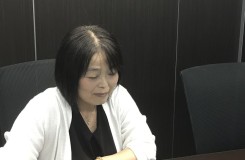 ソシエタス総合研究所 主任研究員井上 登紀子
ソシエタス総合研究所 主任研究員井上 登紀子井上 登紀子の記事を見る
-
 ソシエタス総合研究所 研究員松田 郁乃
ソシエタス総合研究所 研究員松田 郁乃松田 郁乃の記事を見る
-
 ソシエタス総合研究所 研究員アイシェ・ウルグン・ソゼン Ayse Ilgin Sozen
ソシエタス総合研究所 研究員アイシェ・ウルグン・ソゼン Ayse Ilgin Sozenアイシェ・ウルグン・ソゼン Ayse Ilgin Sozenの記事を見る
-
 NPO法人岡山市子どもセンター 事務局久川 春菜
NPO法人岡山市子どもセンター 事務局久川 春菜久川 春菜の記事を見る
-
 ユースワーカー(Youth Woker)森分 志学
ユースワーカー(Youth Woker)森分 志学森分 志学の記事を見る
-
 ペンネーム三村 喜久雄
ペンネーム三村 喜久雄三村 喜久雄の記事を見る
-
 ペンネーム黒木 洋一郎
ペンネーム黒木 洋一郎黒木 洋一郎の記事を見る
-
 NPO法人チャリティーサンタ 理事河津 泉
NPO法人チャリティーサンタ 理事河津 泉河津 泉の記事を見る
-
 金沢大学人間社会学域地域創造学類・准教授 、特定非営利活動法人国土利用再編研究所・理事長林 直樹
金沢大学人間社会学域地域創造学類・准教授 、特定非営利活動法人国土利用再編研究所・理事長林 直樹林 直樹の記事を見る
-
 認定NPO法人ペアレント・サポートすてっぷ理事長安藤希代子
認定NPO法人ペアレント・サポートすてっぷ理事長安藤希代子安藤希代子の記事を見る
-
 カリフォルニア大学サンフランシスコ校小児胸部心臓外科教授佐野俊二
カリフォルニア大学サンフランシスコ校小児胸部心臓外科教授佐野俊二佐野俊二の記事を見る
-
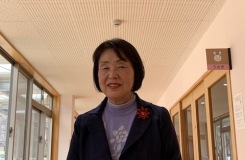 社会福祉法人 旭川荘 ひらたえがお保育園 園長江田 加代子
社会福祉法人 旭川荘 ひらたえがお保育園 園長江田 加代子江田 加代子の記事を見る
-
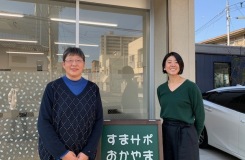 NPO法人 おかやまUFE 副理事長 ・NPO法人 おかやまUFE 事務局阪井 ひとみ・永松千恵
NPO法人 おかやまUFE 副理事長 ・NPO法人 おかやまUFE 事務局阪井 ひとみ・永松千恵阪井 ひとみ・永松千恵 の記事を見る
-
 社会学者 東京大学名誉教授 認定NPO法人ウィメンズアクションネットワーク(WAN)理事長 上野 千鶴子
社会学者 東京大学名誉教授 認定NPO法人ウィメンズアクションネットワーク(WAN)理事長 上野 千鶴子上野 千鶴子 の記事を見る
-
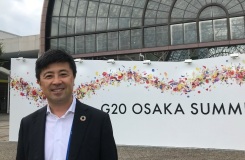 外務省 国際保健政策室長 鷲見 学
外務省 国際保健政策室長 鷲見 学鷲見 学の記事を見る
-
 プロ・アダプティブ・サーファー藤原(旧姓:川上)智貴
プロ・アダプティブ・サーファー藤原(旧姓:川上)智貴藤原(旧姓:川上)智貴の記事を見る
-
 京都大学霊長類研究所 教授正高信男
京都大学霊長類研究所 教授正高信男正高信男の記事を見る
-
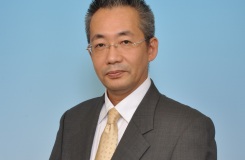 社会医療法人石川記念会HITO病院緩和ケア内科統括部長大坂巌
社会医療法人石川記念会HITO病院緩和ケア内科統括部長大坂巌大坂巌の記事を見る
-
 東京医療学院大学保健医療学部教授上田 諭
東京医療学院大学保健医療学部教授上田 諭上田 諭の記事を見る
-
 「夢を叶える145」ライター宮村孝博
「夢を叶える145」ライター宮村孝博宮村孝博の記事を見る
-
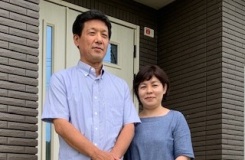 NPO法人 Anneの家 代表 美作地区里親会会員松本芳也・淳子夫妻
NPO法人 Anneの家 代表 美作地区里親会会員松本芳也・淳子夫妻松本芳也・淳子夫妻の記事を見る
-
 特定非営利活動法人あかね 代表理事中山 遼
特定非営利活動法人あかね 代表理事中山 遼中山 遼の記事を見る
-
 大阪市立総合医療センター 緩和医療科部長 兼 緩和ケアセンター長 大阪市立大学医学部臨床准教授 一般社団法人「こどものホスピスプロジェクト」常務理事 日本小児科学会専門医 英国カーディフ大学緩和ケア認定医(Certificate in Palliative Care) 日本緩和医療学会暫定多田羅竜平
大阪市立総合医療センター 緩和医療科部長 兼 緩和ケアセンター長 大阪市立大学医学部臨床准教授 一般社団法人「こどものホスピスプロジェクト」常務理事 日本小児科学会専門医 英国カーディフ大学緩和ケア認定医(Certificate in Palliative Care) 日本緩和医療学会暫定多田羅竜平多田羅竜平の記事を見る
-
 NPO法人 岡山マインド「こころ」/代表理事 一般社団法人お互いさま・まびラボ/副代表理事多田伸志
NPO法人 岡山マインド「こころ」/代表理事 一般社団法人お互いさま・まびラボ/副代表理事多田伸志多田伸志の記事を見る
-
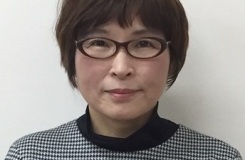 一般社団法人MY TREE代表理事 MY TREEペアレンツ・プログラムスーパーバイザー 認定フェミニストカウンセラー (公認心理師)中川和子
一般社団法人MY TREE代表理事 MY TREEペアレンツ・プログラムスーパーバイザー 認定フェミニストカウンセラー (公認心理師)中川和子中川和子の記事を見る
-
 兵庫県立ひょうごこころの医療センター精神科医師小田 陽彦
兵庫県立ひょうごこころの医療センター精神科医師小田 陽彦小田 陽彦の記事を見る
-
 独立行政法人国立病院機構福山医療センター院長岩垣博己・堀井城一朗・矢野 平
独立行政法人国立病院機構福山医療センター院長岩垣博己・堀井城一朗・矢野 平岩垣博己・堀井城一朗・矢野 平の記事を見る
-
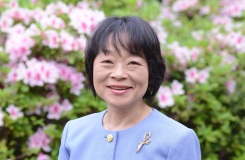 岡山大学社会文化科学研究科 研究科長 教授田中 共子
岡山大学社会文化科学研究科 研究科長 教授田中 共子田中 共子の記事を見る
-
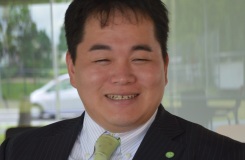 Civil Engineer (仕組みつくりの技術者)石田篤史
Civil Engineer (仕組みつくりの技術者)石田篤史石田篤史の記事を見る
-
 一般財団法人キヤノングローバル戦略研究所 研究主幹・経済学博士松山幸弘
一般財団法人キヤノングローバル戦略研究所 研究主幹・経済学博士松山幸弘松山幸弘の記事を見る
-
 岡山大学生殖補助医療技術教育研究センター ART教育研究部門長・教授舟橋 弘晃
岡山大学生殖補助医療技術教育研究センター ART教育研究部門長・教授舟橋 弘晃舟橋 弘晃の記事を見る
-
 医療法人サンズ理事長浅野 直
医療法人サンズ理事長浅野 直浅野 直の記事を見る
-
 株式会社ヘリオス 代表執行役社長CEO鍵本忠尚
株式会社ヘリオス 代表執行役社長CEO鍵本忠尚鍵本忠尚の記事を見る
-
 慶應義塾大学文学部人間科学専攻教授(医療人類学) McGill大学人類学部・医療社会研究学部Ph.D.北中淳子
慶應義塾大学文学部人間科学専攻教授(医療人類学) McGill大学人類学部・医療社会研究学部Ph.D.北中淳子北中淳子の記事を見る
-
 岡山大学病院 緩和支持医療科片山英樹
岡山大学病院 緩和支持医療科片山英樹片山英樹の記事を見る
-
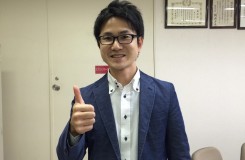 岡山市役所 保健福祉企画総務課松岡克朗
岡山市役所 保健福祉企画総務課松岡克朗松岡克朗の記事を見る
-
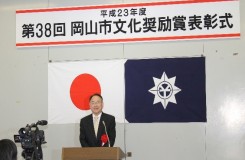 近現代史研究家青木康嘉
近現代史研究家青木康嘉青木康嘉の記事を見る
-
 独立行政法人国立病院機構福山医療センター院長岩垣博己・長谷川利路・中島正勝
独立行政法人国立病院機構福山医療センター院長岩垣博己・長谷川利路・中島正勝岩垣博己・長谷川利路・中島正勝の記事を見る
-
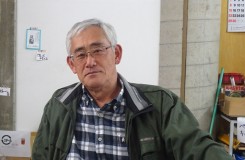 岡山高等学院 副校長 水野文一郎
岡山高等学院 副校長 水野文一郎水野文一郎の記事を見る
-
 社会の仕組み屋、社会の編集者石原 達也
社会の仕組み屋、社会の編集者石原 達也石原 達也の記事を見る
-
 一般社団法人SGSG理事長/中国学園大学子ども学部講師野村泰介
一般社団法人SGSG理事長/中国学園大学子ども学部講師野村泰介野村泰介の記事を見る
-
 一橋大学経済研究所 教授神林 龍
一橋大学経済研究所 教授神林 龍神林 龍の記事を見る
-
 特定医療法人自由会 理事 (社会福祉法人敬友会 理事、公益財団法人橋本財団 理事)橋本 健二
特定医療法人自由会 理事 (社会福祉法人敬友会 理事、公益財団法人橋本財団 理事)橋本 健二橋本 健二の記事を見る
-
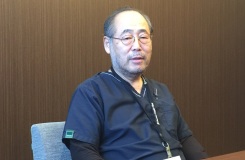 医療法人社団 岡山二人クリニック 理事長、医学博士林 伸旨
医療法人社団 岡山二人クリニック 理事長、医学博士林 伸旨林 伸旨の記事を見る
-
 フリーライター渡辺嗣郎(わたなべ しろう)
フリーライター渡辺嗣郎(わたなべ しろう)渡辺嗣郎(わたなべ しろう)の記事を見る
-
 国立大学法人岡山大学 副理事(国際担当)横井 篤文
国立大学法人岡山大学 副理事(国際担当)横井 篤文横井 篤文の記事を見る
-
 ペンネームドクターX
ペンネームドクターXドクターXの記事を見る
-
 NPO法人 山村エンタープライズ 代表理事藤井裕也
NPO法人 山村エンタープライズ 代表理事藤井裕也藤井裕也の記事を見る
-
 キャンサー・ソリューションズ株式会社 代表取締役社長桜井 なおみ
キャンサー・ソリューションズ株式会社 代表取締役社長桜井 なおみ桜井 なおみの記事を見る
-
 AMDA(アムダ) グループ代表・認定非営利活動法人AMDA 理事長菅波 茂
AMDA(アムダ) グループ代表・認定非営利活動法人AMDA 理事長菅波 茂菅波 茂の記事を見る
-
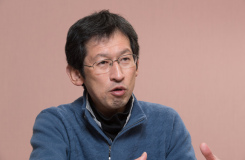 ふれあい歯科ごとう代表五島 朋幸
ふれあい歯科ごとう代表五島 朋幸五島 朋幸の記事を見る
-
 介護従事者髙田 浩一
介護従事者髙田 浩一髙田 浩一の記事を見る
-
 ケアマネ-ジャー・社会福祉士かえる ちから
ケアマネ-ジャー・社会福祉士かえる ちからかえる ちからの記事を見る
-
 五常・アンド・カンパニー株式会社 代表取締役社長慎 泰俊
五常・アンド・カンパニー株式会社 代表取締役社長慎 泰俊慎 泰俊の記事を見る
-
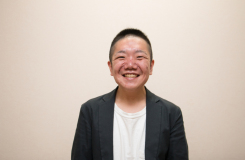 NPO法人 ポケットサポート代表理事三好 祐也
NPO法人 ポケットサポート代表理事三好 祐也三好 祐也の記事を見る
-
 医療法人 寺田病院 院長板野 聡
医療法人 寺田病院 院長板野 聡板野 聡の記事を見る
-
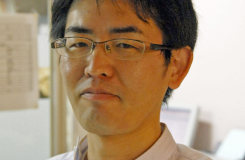 鳥取市立病院 地域医療総合支援センター 生活支援室 副室長、リハビリテーション部 副部長、歯科 医長目黒 道生
鳥取市立病院 地域医療総合支援センター 生活支援室 副室長、リハビリテーション部 副部長、歯科 医長目黒 道生目黒 道生の記事を見る
-
 鳥取市立病院地域医療総合支援センター長 鳥取市福祉部参与足立 誠司
鳥取市立病院地域医療総合支援センター長 鳥取市福祉部参与足立 誠司足立 誠司の記事を見る
-
 ペンネーム池井戸 高志
ペンネーム池井戸 高志池井戸 高志の記事を見る
-
 ペンネーム池田 出水
ペンネーム池田 出水池田 出水の記事を見る
-
 岡山大学大学院ヘルスシステム統合科学研究科教授松岡 順治
岡山大学大学院ヘルスシステム統合科学研究科教授松岡 順治松岡 順治の記事を見る
-
 鳥取市立病院 名誉院長田中 紀章
鳥取市立病院 名誉院長田中 紀章田中 紀章の記事を見る
-
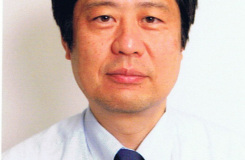 岡山大学大学院保健学研究科 副研究科長 教授齋藤 信也
岡山大学大学院保健学研究科 副研究科長 教授齋藤 信也齋藤 信也の記事を見る
-
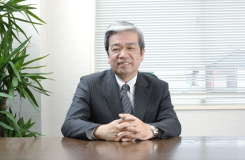 公益財団法人橋本財団 理事長、医学博士橋本 俊明
公益財団法人橋本財団 理事長、医学博士橋本 俊明橋本 俊明の記事を見る

